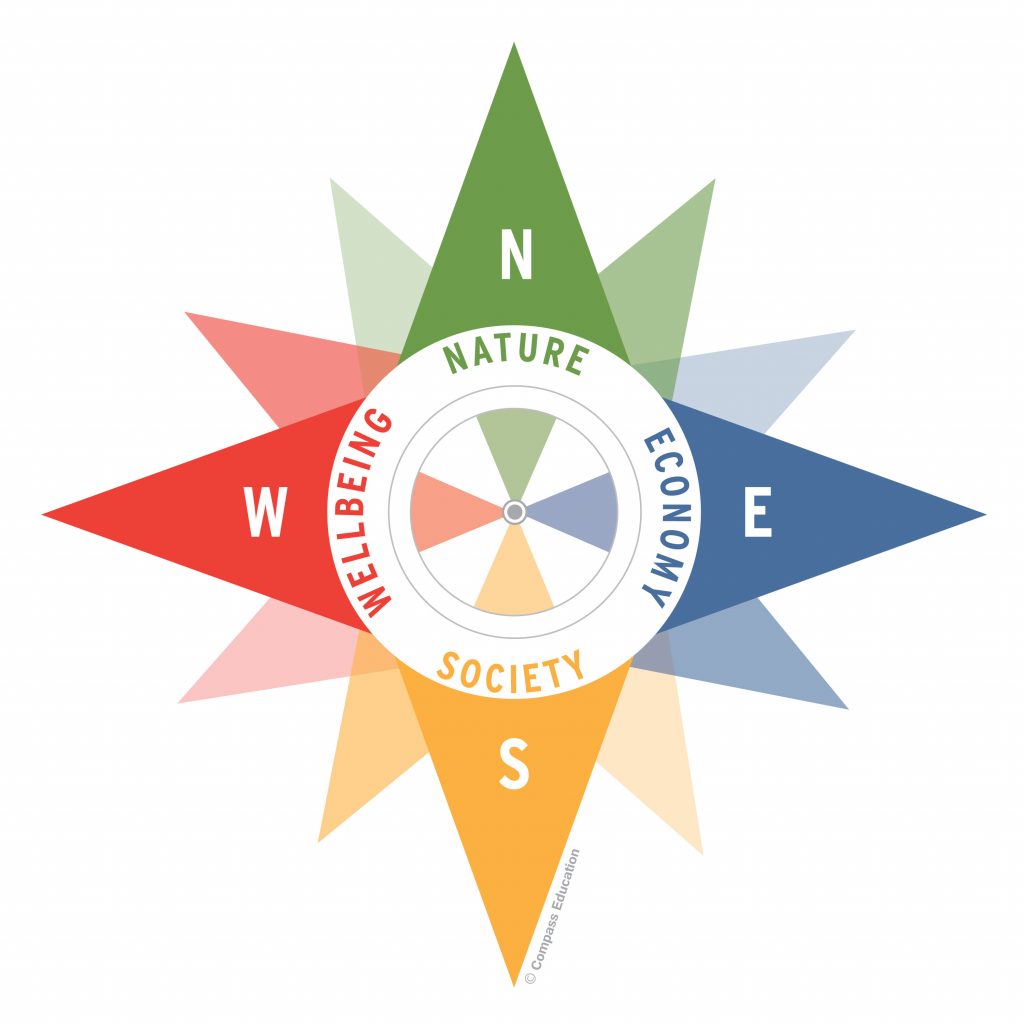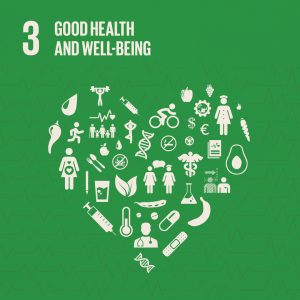“The foremost concern is the wellbeing of humanity and the planet we inhabit.” ~ The Dalai Lama
Sustainability means so many different things to different people. Definitions and descriptions are all over the place. In my humble opinion, some of them are much better than others.
That’s why here at the Auburn University Office of Sustainability we go to great lengths to explain what we mean when we use the term and how our understanding of sustainability directs our work on behalf of Auburn University and its land grant mission.
First, here is how we define it: “Meeting human needs now and in the future, in a fair, just, and equitable way, while protecting and maintaining healthy ecosystems in perpetuity.” In a nutshell, sustainability is about people, all people, and the planet upon which our lives depend.
Second, sustainability is about seeing systems and how everything is connected. We use the Sustainability Compass created by Alan AtKisson as a visible representation of sustainability as a systems approach.
The Sustainability Compass serves as a prism that highlights the interdependent facets of a sustainable world. Each cardinal point of a compass, N, E, S, and W, represents an interdependent system condition of and for sustainability. 
N = Nature
- Restoring and maintaining a thriving biosphere; living in accord with the laws and limits of the natural world (As any ecologist would remind us, nature always has the last word).
E = Economy
- Creating an economy that is robust, productive, and inclusive to meet the needs of all, and that operates respecting the laws and limits of the natural world.
S = Society
- Cultivating community and societal conditions at every scale that exist on behalf of the common good and that nurture human health and wellbeing.
W = Wellbeing
- Achieving individual and collective flourishing for people, place, and the planet, where “everyone enjoys a long, healthy life, lived well.” (Geneva Charter for Wellbeing)
I’d say that, in the end, the whole point of sustainability is individual and collective wellbeing. And isn’t that the purpose of Auburn University as well?
Here’s the university’s mission statement: “As a land-grant institution, Auburn University is dedicated to improving the lives of the people of Alabama, the nation, and the world through forward-thinking education, life-enhancing research and scholarship, and selfless service. Auburn University’s mission concisely describes our central purpose.” (Emphasis in the original)
I perk up at the intersection of “sustainability” and “forward-thinking.” Thomas Jefferson wrote, “Laws and institutions must go hand in hand with the progress of the human mind.” Sustainability as a movement emerged as a result of progress of the human mind, connecting foundational human values and ancient practices with the latest understanding of how well (or not) our human systems serve human rights and life on Earth.
Through life-enhancing research and scholarship, selfless service, and innovation in public, private, and civil sectors, we are gaining an ever clearer understanding of the gap between the way things are and what we need to do to create a world where wellbeing is the universal experience.
By consistently taking action in that direction, we move closer to our goal. Acting in accord with our institutional values to apply expertise developed through teaching, research, outreach, and operational experience, Auburn University can enhance individual and collective wellbeing here on campus, in our community, and in the broader world.
Over the next several months, we will be telling Auburn’s sustainability story more specifically: the programs, policies, and practices that have been established, what we are doing in operations, in teaching and research, and in engaging the campus and broader community to further individual and collective wellbeing.
We all have a role in creating individual and collective wellbeing, locally and globally, for ourselves and others, and perhaps learning more about what Auburn is doing will inspire each of us to act with intentionality. The need has never been greater.
Let’s face it: since the spring of 2020 and the emergence of the COVID-19 pandemic, it has been tough for all of us. Add to that the stunning efforts to subvert democracy at home and abroad – in the supposed bastion of democracy here in the United States an attack on our Capitol and an ongoing denial of the outcome of a free and fair election; the growing impacts of climate change; increasing inequalities between the haves and have nots; racial injustice; intentional disinformation campaigns that inject fear, distrust, and hatred into the national psyche; and more. We are all significantly affected, perhaps in ways we don’t fully appreciate.
All the more reason for each of us to make individual and collective wellbeing a personal and shared priority into the foreseeable future, on campus, in our communities, and across society. What does that look like?
Margaret Wheatley is one of my favorite authors. In her book Who Do We Choose To Be, she asks, “What are the values, intentions, principles for behavior that describe who we want to be?”
She answers that the times call for us to become Warriors for the Human Spirit: “A Warrior for the Human Spirit is a decent human being who aspires to be of service in an indecent, inhumane time…. Warriors for the Human Spirit are awake human beings who have chosen not to flee. They abide.”
Learn about the SDGs & AU and our contributions related to this post.





